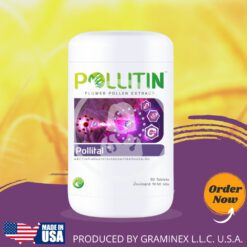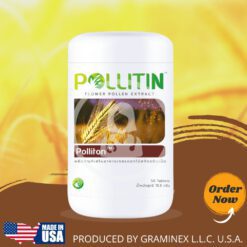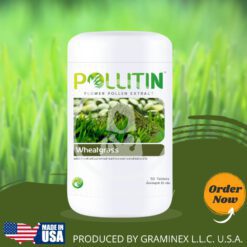Health Tips
how to keep your skin clear
How to keep your skin clear
How to keep your skin clear: Discover simple tips and effective routines to achieve and maintain radiant, blemish-free skin every day.
Understanding human skin type is a fundamental step in developing an effective skincare routine. The five primary skin types include normal, oily, dry, combination, and sensitive skin. Each type has distinct characteristics and requires specific care to maintain clarity and health.
Normal skin is characterized by a balanced moisture level, neither too oily nor too dry. It typically exhibits few imperfections and has a smooth texture. This skin type can tolerate a wide range of products, though it is still essential to maintain a basic routine to keep it clear and healthy.
Oily skin, on the other hand, produces excess sebum, leading to a shiny appearance and an increased likelihood of acne and clogged pores. Individuals with oily skin should focus on non-comedogenic products and consider incorporating exfoliating ingredients to help regulate oil production and maintain clear skin.
Dry skin lacks adequate moisture, often resulting in flakiness, tightness, or even irritation. Such skin types benefit from hydrating products containing ingredients like hyaluronic acid or glycerin, which help replenish moisture and create a barrier against environmental aggressors.
Combination skin features characteristics of more than one skin type, often displaying an oily T-zone while the cheeks remain dry. It requires a balanced approach, utilizing targeted products that cater to both the oily and dry areas effectively.
Sensitive skin is prone to reactions and often appears red or irritated. Individuals with sensitive skin should opt for gentle, fragrance-free products that minimize irritation and maintain skin clarity. Identifying your skin type is crucial not just for selecting the right products but also for understanding how your skin reacts to various environmental factors and treatments.
This knowledge is foundational for establishing an effective skincare routine tailored to your skin’s unique needs, ultimately leading to clearer, healthier skin.
Establishing a Daily Skincare Routine
Maintaining clear skin is a multifaceted endeavor that necessitates a consistent daily skincare routine. This routine generally consists of four essential steps: cleansing, toning, moisturizing, and applying sunscreen. Each step plays a crucial role in promoting skin health and addressing various concerns, which helps maintain a clear complexion.
The first step, cleansing, is vital for eliminating dirt, makeup, and excess oils that can clog pores and contribute to breakouts. It is recommended to choose a gentle, sulfate-free cleanser tailored to your skin type. For instance, those with oily skin might benefit from a foaming cleanser, while individuals with dry skin should consider a cream-based option. Cleansing should be performed twice daily, once in the morning and once before bedtime.
Following cleansing, toning helps restore the skin’s pH balance, regulates oil production, and prepares the skin for subsequent products. Look for alcohol-free toners containing ingredients like witch hazel or rosewater, which can soothe the skin and reduce inflammation. Incorporating this step into your daily skincare routine is essential for achieving a clear complexion.
The next step involves moisturizing the skin, which is crucial regardless of skin type. A lightweight, non-comedogenic moisturizer can hydrate the skin without clogging pores. For oily skin types, gel-based moisturizers are recommended, while cream formulas are better suited for those with dry or sensitive skin. Proper hydration allows the skin to function optimally and enhances its protective barrier.
Lastly, applying sunscreen is non-negotiable, as sun exposure can lead to skin damage and exacerbate existing issues such as hyperpigmentation and premature aging. Choose a broad-spectrum sunscreen with at least SPF 30 and apply it daily, even on cloudy days. Consistency in following this daily skincare routine is paramount in achieving and maintaining clear skin over time.
The Role of Diet and Hydration
Maintaining clear and healthy skin goes beyond topical treatments; it fundamentally begins with what we consume. The connection between diet and skin health is well-documented, emphasizing the importance of vitamins, minerals, and antioxidants. Integrating an array of nutrient-rich foods into one’s diet can significantly enhance skin clarity and reduce the risk of breakout occurrences.
Key vitamins such as Vitamin A, C, and E play vital roles in skin health. For instance, Vitamin A assists in skin cell production and repair, while Vitamin C is crucial for collagen synthesis and acts as a potent antioxidant that protects the skin from free radicals. Foods rich in these vitamins include carrots, oranges, and nuts, all of which can support a clear complexion. Similarly, Omega-3 fatty acids, found in fish like salmon and walnuts, contribute to skin hydration and reduce inflammation, which can further prevent issues such as acne.
Minerals such as zinc also hold great importance in maintaining skin health. Zinc aids in healing skin irritations and may help control oil production, making it beneficial for those prone to acne. Incorporating foods like legumes and seeds ensures an adequate intake of this essential mineral.
Beyond solid food choices, hydration is equally critical. Adequate water intake keeps the skin moist and may improve its elasticity. Dehydration can lead to dryness and premature aging. Aim for at least eight glasses of water daily, and consider incorporating hydrating fruits and vegetables, such as cucumbers and melons, to boost overall fluid intake.
To optimize skin health through diet, it is advisable to limit processed foods and sugars, which can exacerbate inflammation and lead to breakouts. Instead, focus on a balanced diet rich in whole foods, fruits, vegetables, and healthy fats. By taking these steps, individuals can promote clearer skin and overall well-being.
Common Skin Issues and Solutions
Maintaining clear and healthy skin can often present a challenge due to various common skin issues. Among these, acne, blackheads, and blemishes rank as frequent concerns for many individuals. Understanding their causes and developing effective prevention strategies is paramount for achieving clearer skin.
Acne primarily occurs when hair follicles become clogged with oil and dead skin cells. This condition can be exacerbated by hormonal fluctuations, stress, and certain foods. To prevent acne, individuals are encouraged to maintain a consistent skincare routine that includes cleansing, exfoliation, and moisturizing. Look for products containing salicylic acid or benzoyl peroxide, as these ingredients are known for their ability to reduce acne breakouts. It is advisable to avoid heavy oils and comedogenic products that can worsen the condition.
Blackheads are a subtype of acne that form when pores become clogged, but remain open at the surface. They appear as small dark spots and can be particularly frustrating. To combat blackheads, regular exfoliation is essential. Products containing alpha hydroxy acids (AHAs) or retinoids can be beneficial, as they help to dissolve dead skin. Furthermore, using clay masks can draw out impurities from the pores, thereby reducing their appearance.
Blemishes can result from several factors, including irritation, hormonal changes, and environmental stressors. To minimize blemishes, it is crucial to establish a skincare regimen that emphasizes hydration and protection. Ingredients such as niacinamide and tea tree oil are recommended for their anti-inflammatory properties and ability to reduce the formation of blemishes. Additionally, wearing sunscreen daily aids in preventing skin damage that may lead to further skin issues.
By understanding these common skin issues, individuals can take proactive steps to maintain clearer skin. Implementing the aforementioned tips can significantly contribute to effective skin management and overall skin health.
The Importance of Exfoliation
Exfoliation plays a pivotal role in maintaining clear skin, as it helps to remove dead skin cells, unclog pores, and encourage cell turnover. By promoting a healthy skin renewal process, exfoliation can significantly enhance the appearance and texture of the skin. There are two main types of exfoliation: physical and chemical. Physical exfoliants often come in the form of scrubs that manually slough off dead skin, while chemical exfoliants utilize acids or enzymes to dissolve debris and promote cell turnover without the need for abrasive action.
Choosing the right exfoliant is crucial and depends largely on individual skin types. For example, those with sensitive skin may benefit from a gentle chemical exfoliant, such as lactic acid, which offers mild exfoliation without irritation. Conversely, individuals with oily or acne-prone skin may find success with stronger options like salicylic acid or glycolic acid, which penetrate deeper into the pores and help to control excess oil production. It is recommended to exfoliate one to three times per week, depending on the product used and the skin’s tolerance. Over-exfoliating can lead to skin irritation, redness, and a compromised skin barrier, which can exacerbate issues rather than alleviate them.
When incorporating exfoliation into your skincare routine, it is essential to pay attention to your skin’s response. By monitoring how your skin reacts, you can tailor the frequency and type of exfoliant to ensure that your skin remains clear and vibrant. In conclusion, exfoliation is a fundamental step in any skincare regimen, as it not only enhances skin clarity but also paves the way for better absorption of other products, allowing for more effective skincare. The benefits of a well-executed exfoliation routine can be transformative, contributing to a healthier complexion overall.
Protecting Your Skin from Environmental Stressors
The clarity and overall health of your skin can be significantly impacted by various environmental stressors, including pollution, ultraviolet (UV) radiation, and unpredictable weather changes. Understanding these factors and implementing effective protective measures is essential for maintaining a radiant complexion.
Pollution is one of the most pervasive environmental threats to skin health. Airborne pollutants can lead to oxidative stress, resulting in premature aging and dullness. To combat these effects, it is vital to incorporate a gentle cleansing routine to remove impurities and toxins from the skin effectively. Additionally, products containing antioxidants, such as vitamins C and E, can help neutralize free radicals caused by pollution and enhance skin clarity.
UV exposure is another significant factor contributing to skin damage. Prolonged sun exposure can lead to sunburn, hyperpigmentation, and even skin cancer. To protect your skin, applying broad-spectrum sunscreen with an SPF of at least 30 is crucial, regardless of the weather. This should be done daily, as UV rays can still penetrate clouds and harm the skin. Moreover, wearing protective clothing and seeking shade during peak sun hours (10 a.m. to 4 p.m.) can further shield your skin from harmful rays.
Weather changes, including temperature shifts and humidity fluctuations, can also affect skin clarity. Cold, dry air can strip moisture from the skin, while excessive heat and humidity can lead to insufficient oil production and clogged pores. To adapt to these conditions, it is essential to use a hydrating moisturizer suited to your skin type and to make adjustments as the seasons change. Proper hydration, both internally and externally, will help support your skin’s barrier function.
By understanding these environmental stressors and adopting the appropriate protective measures, you can significantly enhance your skin’s clarity and overall health. Taking these steps is vital in the ongoing journey to achieving and maintaining clear, radiant skin.
The Role of Stress and Sleep
Stress and sleep are two critical factors that significantly impact skin health. When the body experiences stress, it can trigger various physiological responses, including the release of cortisol, a hormone known to contribute to skin flare-ups. Elevated cortisol levels can lead to increased oil production in the skin, resulting in clogged pores and consequent breakouts. Furthermore, chronic stress may exacerbate conditions such as eczema and psoriasis, leading to inflammation and discomfort. Addressing stress is therefore vital for maintaining clear and healthy skin.
In addition to managing stress, sleep quality plays a crucial role in overall skin health. During deep sleep, the body undergoes repair processes, which include the regeneration of skin cells and the synthesis of collagen. A lack of sleep can disrupt these processes, leading to dull, tired-looking skin and premature aging signs. Research has indicated that individuals who do not achieve adequate sleep experience a slower skin healing process, making it even more challenging to manage existing skin conditions.
To mitigate stress and enhance sleep hygiene, several strategies can be implemented. Engaging in regular physical activity, practicing mindfulness or meditation, and adopting relaxation techniques can help lower stress levels. Prioritizing good sleep hygiene is equally important; it is advisable to maintain a consistent sleep schedule, create a sleep-conducive environment, and limit exposure to screens before bedtime. Incorporating these practices can create a balanced routine that fosters not only mental well-being but also improves skin clarity.
In conclusion, understanding the relationship between stress, sleep, and skin health is essential. By prioritizing stress management and promoting healthy sleep habits, individuals can contribute to clearer, healthier skin and overall well-being.
When to Seek Professional Help
Maintaining clear skin can often be achieved through a diligent personal skincare routine; however, there are instances when the expertise of a dermatologist becomes essential. Recognizing these moments is crucial to ensure optimal skin health. If you notice persistent conditions such as severe acne, eczema, or psoriasis that do not respond to over-the-counter products, it may be time to seek professional help.
Another sign that you should consult a dermatologist is the presence of unusual changes in your skin, such as new moles, changes in existing moles, or persistent rashes. Skin cancer, for example, can manifest through changes that may not be easily identifiable without professional evaluation and treatment. Additionally, if you are experiencing symptoms related to skin infections—such as swelling, red streaks, or fever—it is advisable to seek prompt medical attention.
Dermatologists can offer tailored treatments that cater to various skin conditions. These may include prescription medications, such as topical creams, oral antibiotics, or hormonal therapies, which can effectively address issues that standard products may not resolve. Moreover, more advanced conditions may require clinical procedures, such as chemical peels, laser therapy, or phototherapy, which are administered in a clinical setting for enhanced outcomes.
It is essential to prioritize your skin health by being vigilant about its changes and seeking professional help when necessary. Early intervention is often key in preventing more severe skin issues, as well as ensuring a clearer complexion. Always consider consulting a dermatologist when home treatments prove ineffective or when your skin exhibits concerning changes.
Maintaining Long-Term Skin Clarity
Achieving and maintaining long-term skin clarity is a multifaceted process that requires consistent effort and adaptation. As individuals age, their skin undergoes various changes, necessitating modifications in skincare routines to meet evolving needs. For instance, as one matures, skin may lose elasticity and hydration, leading to a preference for more emollient-rich products that promote moisture retention. This shift can be crucial in preserving a youthful appearance while ensuring that the skin remains free from blemishes and pronounced aging signs.
Seasonal changes also play a significant role in determining the type of products one should incorporate into their daily regimen. During the colder months, skin often becomes drier due to lowered humidity levels. Incorporating heavier moisturizers and nourishing oils can help combat this dryness and keep the skin clear. Conversely, summer months may require lighter formulations, such as gel-based moisturizers and non-comedogenic sunscreens. This adaptability can prevent breakouts while sustaining skin clarity throughout changing environmental conditions.
Lifestyle adjustments, including diet and stress management, are equally vital in maintaining skin health. Integrating a balanced diet rich in antioxidants, vitamins, and minerals can significantly enhance the skin’s resilience and overall clarity. Hydration is also crucial; consuming adequate water helps maintain skin elasticity and clarity. Additionally, mindfulness practices such as meditation or yoga can reduce stress, known to trigger various skin concerns, ensuring a clearer complexion over time.
Ultimately, the journey towards clear skin is ongoing, requiring patience and commitment. By remaining aware of the factors impacting skin health and being prepared to adapt skincare routines accordingly, individuals can achieve long-term clarity and a vibrant complexion. It is essential to acknowledge that what works will vary from person to person, and finding the perfect balance will take time and experimentation.









Recommended Products
Cervical Cancer Health Care Set
Pollital Pollitin Graminex Pollen Extract
Livero II Pollitin Graminex Pollen Extract
Breast Cancer Health Care Set